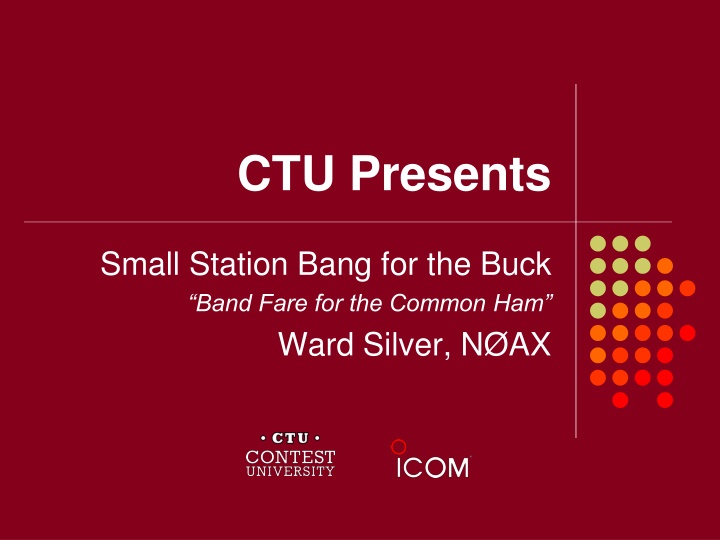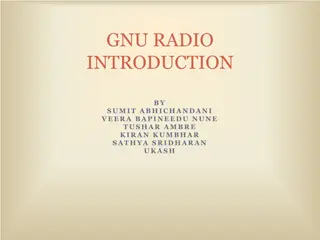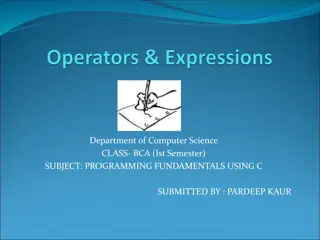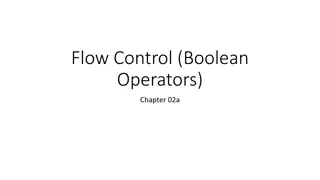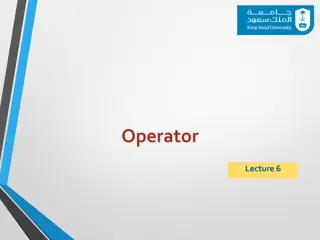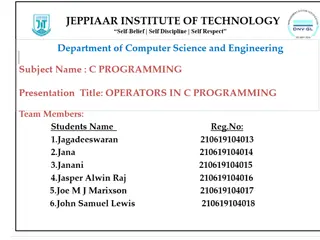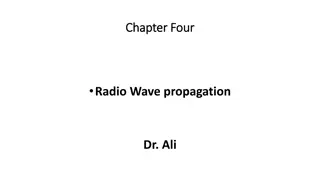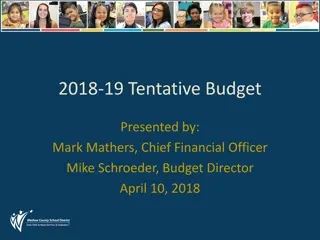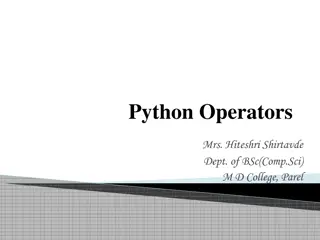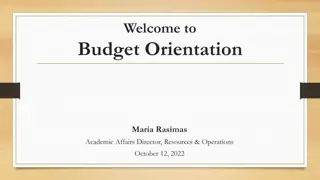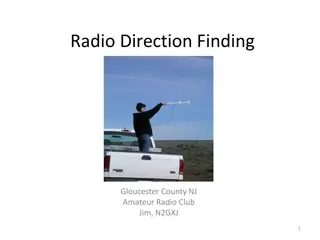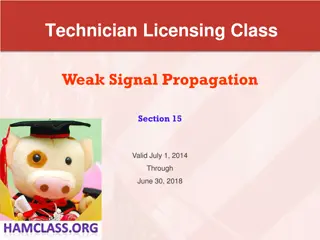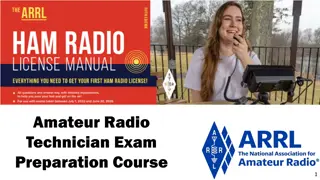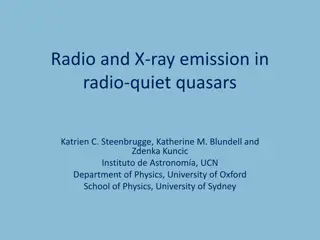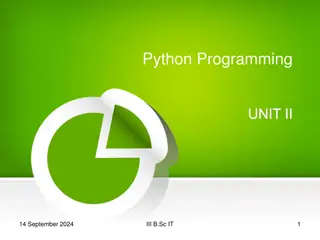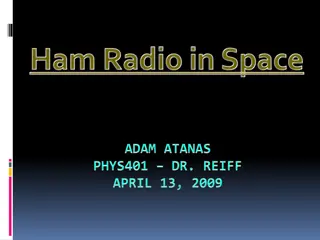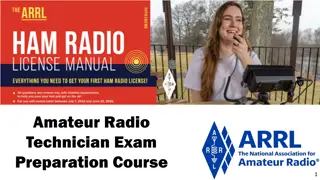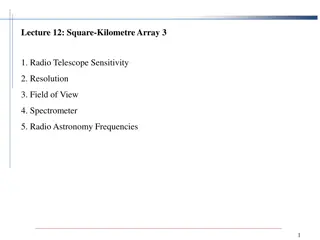Contesting Success: Strategies for Small Budget Radio Operators
Explore strategies for improving contest performance on a modest budget with a single radio setup. From operator priorities to ergonomic tips, this presentation covers essential aspects to help you progress step by step and enhance your skills effectively.
Download Presentation

Please find below an Image/Link to download the presentation.
The content on the website is provided AS IS for your information and personal use only. It may not be sold, licensed, or shared on other websites without obtaining consent from the author.If you encounter any issues during the download, it is possible that the publisher has removed the file from their server.
You are allowed to download the files provided on this website for personal or commercial use, subject to the condition that they are used lawfully. All files are the property of their respective owners.
The content on the website is provided AS IS for your information and personal use only. It may not be sold, licensed, or shared on other websites without obtaining consent from the author.
E N D
Presentation Transcript
CTU Presents Small Station Bang for the Buck Band Fare for the Common Ham Ward Silver, N AX
Overview Priorities Building On Success Bang for the Buck Refine & Enhance Q&A Anytime!
Who the Heck is NAX? And why do you care?
Goals of the Session Define the problem Discuss making an overall strategy Find Score dB s Encourage you to improve Laff
Assumptions about you Familiar with contesting Modest station one radio, no amp Modest budget Willing to progress step-by-step Taken and given some lumps Want to give some more lumps What s the best way to get better?
How To Use This Presentation Not a how-to cookbook Follow in the text Take short notes Jot down ideas as we go Every operator and station is different We all started low and slow
Priorities Operator First Technique Second Antennas Third Radios Fourth Gadgets Last
Cycle of Life Observe Judge Act
Cycle of Life Observe Repent Judge Act
Layers Contest success is incremental Peel the onion Be heard, then hear, then be heard, then hear Operator improvement is continuous Study and analyze and plan Address the obvious deficiencies first Choose wisely, grasshopper
The Operator - Ergonomics Incredibly important Fun or Slog? Choose! Maintain concentration, remove distractions Labels and logical, consistent layout Preserve and enhance accuracy
The Operator A Human! Head and Eyes Back & Arms Your Butt Fitness (Before and During) Stay Alert & Engaged
Knowledge Know Your Stuff Study Propagation Learn Your Software Recognize Calls Study Your Old Logs Study the Logs of Winning Stations
Technique Number one source of score dB s Practice makes the master Listen to the Masters Up Close Start working with multi-op teams Or start one! Ask them questions! Trade recordings or listen live
Technique Gimmes Run more and whenever you can Find propagation that allows your station to run You don t have to be on the band edge! Think signal-to-noise on both ends Type send speak copy accurately Breathe, be consistent, find a rhythm The second radio make it play
Technique Accuracy Go for World Class Accuracy (<1% error) Study that LCR/UBN Report What do you consistently miss? What do others consistently miss from you? Pull Out Full Calls Be Wary of Databases, Spots, Skimmers Learn Not to Guess and When to Move On
Technique Managing Time Running is key Rate meter QSOs per mult Distractions Packet and Dxing Too much information Operating time planning Go get that next contact! No magazines, no TV, no email, no browsing
Technique Managing Score Watch for & move mults (Sunday!) Avoid penalties at all costs Expeditions work em all! Make skeds during the contest Know the propagation Quick reviews of the situation now and then Review and adjust your plan
The Second Radio & Antenna Keep it simple Temporary is OK - be consistent Integrate into your station Target low-rate periods Don t diminish your primary rig & antenna Consider automation
The Second Radio Using It In-band Tuning The Quick QSY Running and Tuning at the Same Time Learn to listen to two audio streams at one time Practice shifting your focus Great for spot-chasing while slow-running Operate for a net gain
CQing Call high in the band for best SNR Respond consistently & efficiently Work the fast stations first Pull out a full call whenever you can Listen for DX sound and odd first letters Manage your RF Gain & Attenuation Learn to rely on your ears for filtering
Antenna Selection Improve for the next level Simplify switching and aiming Contesting is not DX-ing A small fixed Yagi to EU, Carib, PacRim, or ? Simple low-band receive antennas Reduce noise = reduce fatigue Still the biggest bang for the buck
Radios Clean receiver most important Linearity Gain management Filtering Low Distortion audio Clean transmit code, phone, digital Learn to use them!
Gadgets The fewer boxes to manage, the better Carefully evaluate the need Are there alternatives? Is the extra complexity worth it? Integrate into the station Learn to use it!
Software Turn off unused features & windows Upgrade and test before Friday Arrange windows to match your layout Learn how to Edit a previous QSO while not suspending a run Switch focus between radios Put the monitor where you can see it easily
Resources Other contesters & your contest club 3830scores.com soapbox K8ND s SO2R Web page - www.k8nd.com/Radio/SO2R/K8ND_SO2R.htm W4RNL Antenna Design cebik.com Towertalk, Top Band reflectors National Contest Journal & ncjweb.com ARRL Contest Update newsletter
Priorities Operator First Technique Second Antennas Third Radios Fourth Gadgets Last
